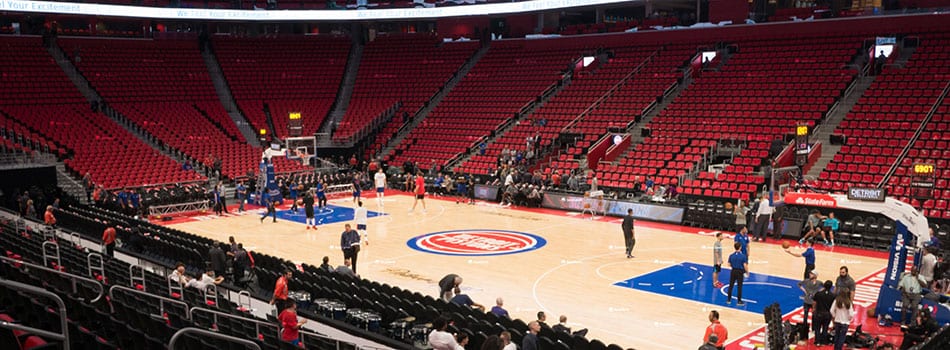Governor Gretchen Whitmer of Michigan signed into law bills making ticket resale legal in the state, ending a long-standing but infrequently enforced ban on selling tickets for more than face value. Senate Bills 384 and 385 were signed into law last week, having been passed by the legislature in September.
At its core, the action decriminalizes the resale of tickets to live events for more than face value. It contains additional language, which requires the seller to have “actual possession or control” of a ticket before it can be offered for sale, and banning the use of automated programs or “bots” in the acquisition of tickets in the states. Senate Bill 384 was sponsored by Senator Erika Geiss, D-Taylor and Senate Bill 385 was sponsored by Senator Tom Barrett, R-Charlotte.
Those found in violation of the terms of the newly passed law are guilty of a misdemeanor offense which is punishable by fines of $1,000 and up to 93 days in jail.
The signing brings to a close a long battle to repeal the existing ban. Similar bills have been pushed in recent years by Michigan lawmakers, but failed to pass the full body despite the law itself being seldom enforced (and more or less impossible to impose on resale marketplaces located outside of the state). In 2018, such a bill passed the House by a 71-36 margin, but failed to pass the senate.
Full language of the passed legislation is included below, and linked here: SB 384 | SB 385
ENROLLED SENATE BILL No. 384
AN ACT to amend 1931 PA 328, entitled “An act to revise, consolidate, codify, and add to the statutes relating to crimes; to define crimes and prescribe the penalties and remedies; to provide for restitution under certain circumstances; to provide for the competency of evidence at the trial of persons accused of crime; to provide immunity from prosecution for certain witnesses appearing at criminal trials; to provide for liability for damages; and to repeal certain acts and parts of acts inconsistent with or contravening any of the provisions of this act,”
(MCL 750.1 to 750.568) by adding section 464b.
The People of the State of Michigan enact:
Sec. 464b. As used in section 465:
(a) “Internet domain name” means a globally unique, hierarchical reference to an internet host or server, which is assigned through a centralized internet naming authority, and which is composed of a series of character strings separated by periods with the rightmost string specifying the top of the hierarchy.
(b) “Ticket website” means a website advertising the sale of tickets, offering the sale of tickets, or facilitating a secondary ticket exchange.
(c) “URL” means the uniform resource locator for a website on the internet.
(d) “Venue” includes a sports venue, concert venue, theatrical venue, club, convention center, fairgrounds, public assembly facility, or mass gathering location.
Enacting section 1. This amendatory act takes effect 90 days after the date it is enacted into law.
Enacting section 2. This amendatory act does not take effect unless Senate Bill No. 385 of the 100th Legislature is enacted into law.
This act is ordered to take immediate effect
ENROLLED SENATE BILL No. 385
AN ACT to amend 1931 PA 328, entitled “An act to revise, consolidate, codify, and add to the statutes relating to crimes; to define crimes and prescribe the penalties and remedies; to provide for restitution under certain circumstances; to provide for the competency of evidence at the trial of persons accused of crime; to provide immunity from prosecution for certain witnesses appearing at criminal trials; to provide for liability for damages; and to repeal certain acts and parts of acts inconsistent with or contravening any of the provisions of this act,” by amending section 465 (MCL 750.465).
The People of the State of Michigan enact:
Sec. 465. (1) The owner, lessee, operator, or manager of each theatre, circus, athletic grounds used for an athletic game, or place of public entertainment or amusement shall have printed on each ticket issued for admission to, or for a seat of, the theatre, circus, athletic grounds, or place of public entertainment or amusement, in conspicuous type, the price of the ticket, and the number on the seat if the seats are numbered. The owner, lessee, operator, or manager also shall print or endorse on the ticket the charge in excess of the box office price at which the ticket is sold if the ticket is purchased at a location other than the box office where the event occurs and the following statement: “This ticket may be purchased at the box office price without the surcharge by purchasing the ticket at the box office where the event is scheduled to occur.”.
(2) A person shall not knowingly sell, give, transfer, use, distribute, or possess with the intent to distribute software that is primarily designed or produced for the purpose of interfering with the ticket sale operations of any owner, lessee, operator, or manager of a theatre, circus, athletic grounds, or place of public entertainment or amusement over the internet by circumventing any measures or controls on the seller’s website that are instituted to enforce event ticket purchasing limits or to maintain the integrity of online purchasing order rules.
(3) Except as provided in subsection (4), a person owning, operating, or controlling a ticket website for an event scheduled at a venue in this state shall not use an internet domain name or subdomain thereof in the ticket website’s URL that contains any of the following:
(a) The name of the venue.
(b) The name of the event, including the name of a person or entity scheduled to perform or appear at the event.
(c) A name substantially similar to those described in subdivision (a) or (b).
(4) Subsection (3) does not apply if the person owning, operating, or controlling a ticket website for an event scheduled in this state is acting on behalf of the venue, event, person, or entity scheduled to perform or appear at the event.
(5) A person shall not make available for sale a ticket that is not in his or her possession or control.
(6) This section does not alter or affect the remedies available for unfair, unconscionable, or deceptive methods, acts, or practices related to the sale of tickets under the Michigan consumer protection act, 1976 PA 331, MCL 445.901 to 445.922, or for untrue, deceptive, or misleading advertising of tickets under the Michigan shopping reform and modernization act, 2011 PA 15, MCL 445.311 to 445.324.
(7) If any provision of this act or its application to any person or circumstances is held invalid, the invalidity does not affect other provisions or applications of this act that can be given effect without the invalid provision or application, and, to this end, the provisions of this act are severable.
(8) A person that violates this section is guilty of a misdemeanor punishable by imprisonment for not more than 93 days or a fine of not more than $1,000.00, or both.
Enacting section 1. This amendatory act takes effect 90 days after the date it is enacted into law.
Enacting section 2. This amendatory act does not take effect unless Senate Bill No. 384 of the 100th Legislature is enacted into law.




